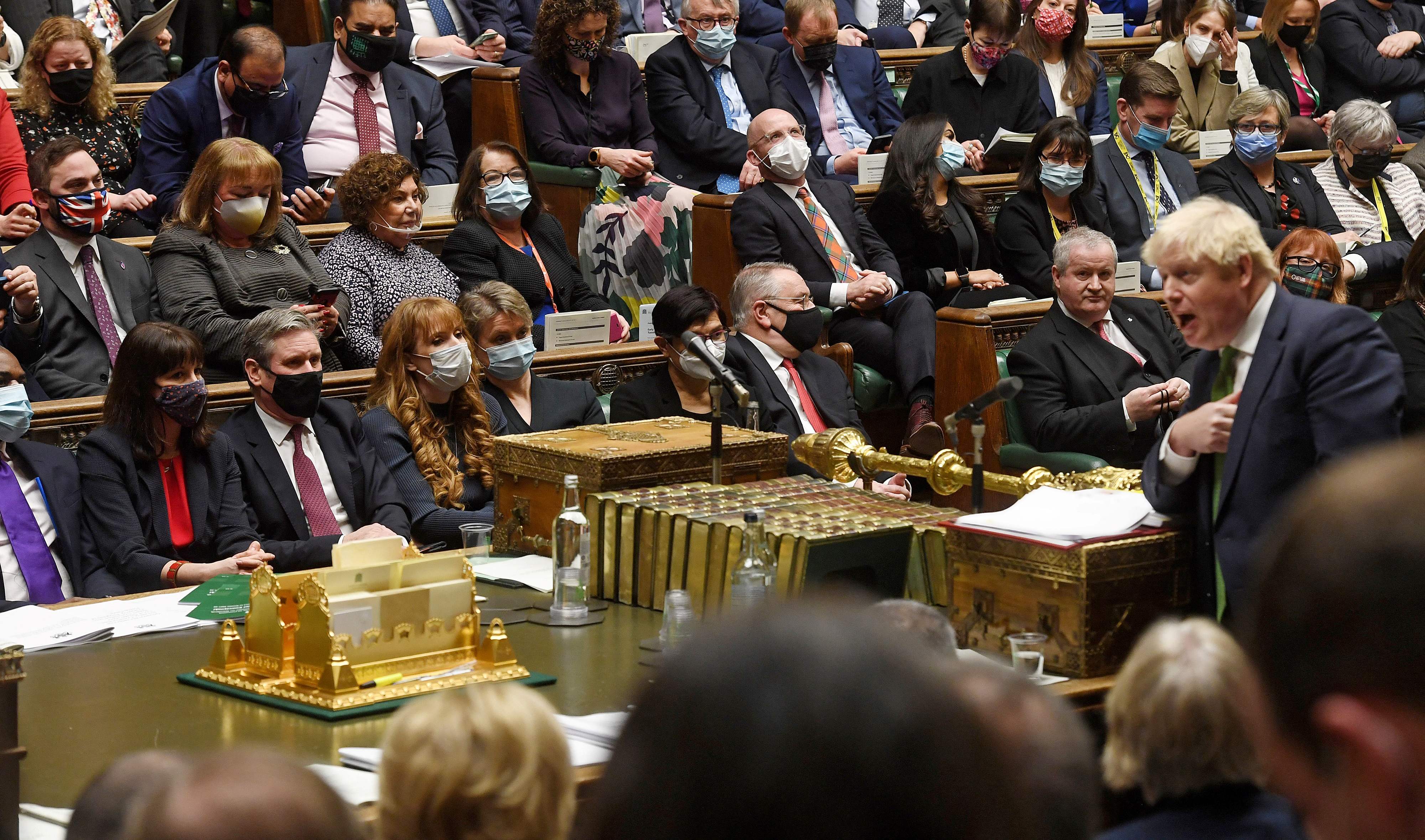Beware, Boris Johnson, political defections can destabilise a tottering leadership
‘Crossing the floor’ from Conservative to Labour is a rare event, writes Sean O’Grady


The dramatic defection of Christian Wakeford from the Conservatives to Labour is fairly easily explained, by close reference to the psephology of his parliamentary seat, Bury South.
Wakeford took the formerly Labour seat at the 2019 election, with a very slim majority of 402, or 0.8 per cent, aided a little by the intervention of the former Labour MP, Ivan Lewis, standing as an independent and securing some 2.7 per cent of the vote. (Lewis had been suspended by Labour in 2017 after allegations of sexual misconduct, accusations he has denied, He later resigned from the party).
Given the trends in the opinion polls, the chances are growing that the seat would return to Labour at the next general election, though it will be redrawn to account for population movements in the area. Though a fairly safe seat since 1997, it had been much more of a classic Con/Lab marginal in the 1980s.
Wakeford, a critic of the prime minister, was also reportedly disconcerted by a meeting with Conservative whips who threatened him with losing his nomination when his seat is reorganised in the next boundary review. Wakeford perhaps felt he had nothing much to lose. He had already sent a letter to the chair of the 1922 Committee, Graham Brady, calling for a party vote of no confidence in Boris Johnson. Ironically, that letter no longer stands, so Johnson is very slightly safer, though embarrassed by the defection.
Labour made the most of their prize. It was an unusually closely guarded secret, and Wakeford, complete with Union Flag face covering, was parked directly behind Keir Starmer for Prime Minister’s Questions. Johnson, though, was defiant and promised that he would win Bury South again at the next election.
It is far from unusual for MPs to defect to other parties. Sometimes MPs have sat as independents because their own party has expelled or suspended them from the parliamentary group, and withdrawn the whip – Jeremy Corbyn currently being the most high-profile example.
In the last, turbulent, parliament, even figures such as Kenneth Clarke and Nicholas Soames sat as independents because of their voting record on Brexit. Other MPs, such as those who formed Change UK or, in the more distant past, the SDP, defect to start their own parties.
However, a switch and “crossing the floor” from Conservative to Labour is a rare event. The last such were the moves by Quentin Davies in June 2007 and Shaun Woodward in December 1999, over the Tory party’s Euroscepticism. But the last time it happened during a period of Tory rule was in 1995, in John Major’s time, when the moderate, liberal-minded government backbencher Alan Howarth switched to Tony Blair’s resurgent New Labour opposition. There were no moves to Labour during the premierships of David Cameron and Theresa May. Usually disaffected Conservatives sit as independents or switch to the Liberal Democrats (such as Emma Nicholson and Phillip Lee) or Ukip (Mark Reckless and Douglas Carswell), as was.
Wakeford’s move is all the more painful for the Conservatives because it is direct to the main opposition party, and it thus reflects the pattern of voter behaviour in the national opinion polls which show a net transfer between the two major UK parties, with the Lib Dems, Greens and Reform UK picking up relatively few ex-Tory converts (with other disappointed ex-Tory voters going to “won’t vote”).
As is the norm with defectors, Wakeford will not fight a by-election under his new colours. He may win the Labour nomination for the highly marginal seat; previous defectors (Howarth and Woodward) moved from safe Conservative seats to solid Labour ones, to some grumbling.
As for the impact, defections in themselves when a government enjoys a large majority don't affect the parliamentary facts of life much, but they can destabilise a tottering leadership and fit into a wider narrative, as in the 1990s, of government decay and opposition revival. Tories will hope that the surprise of the move will rally their troops, but it is difficult to present losing an MP, even a fairly obscure one, as a political positive. It’s a shocker.



Join our commenting forum
Join thought-provoking conversations, follow other Independent readers and see their replies
Comments